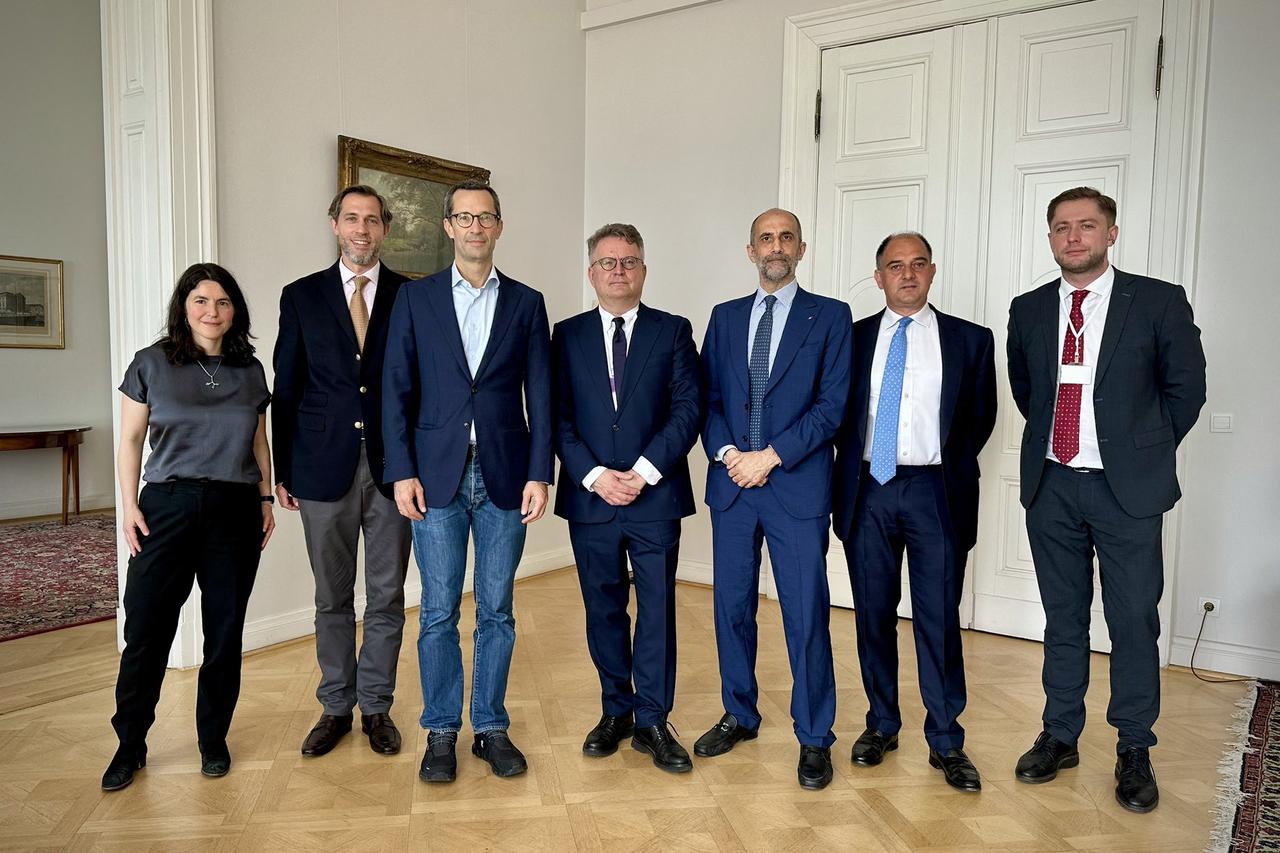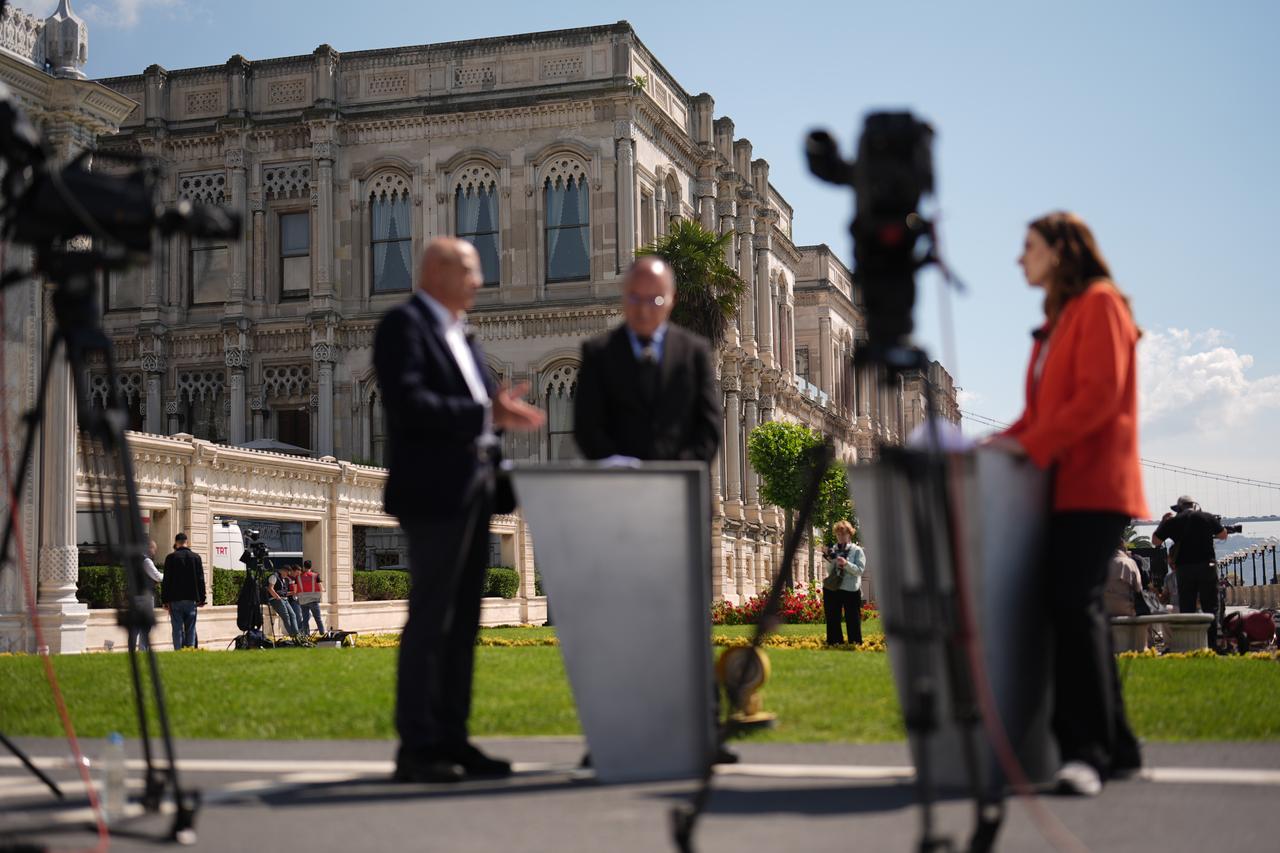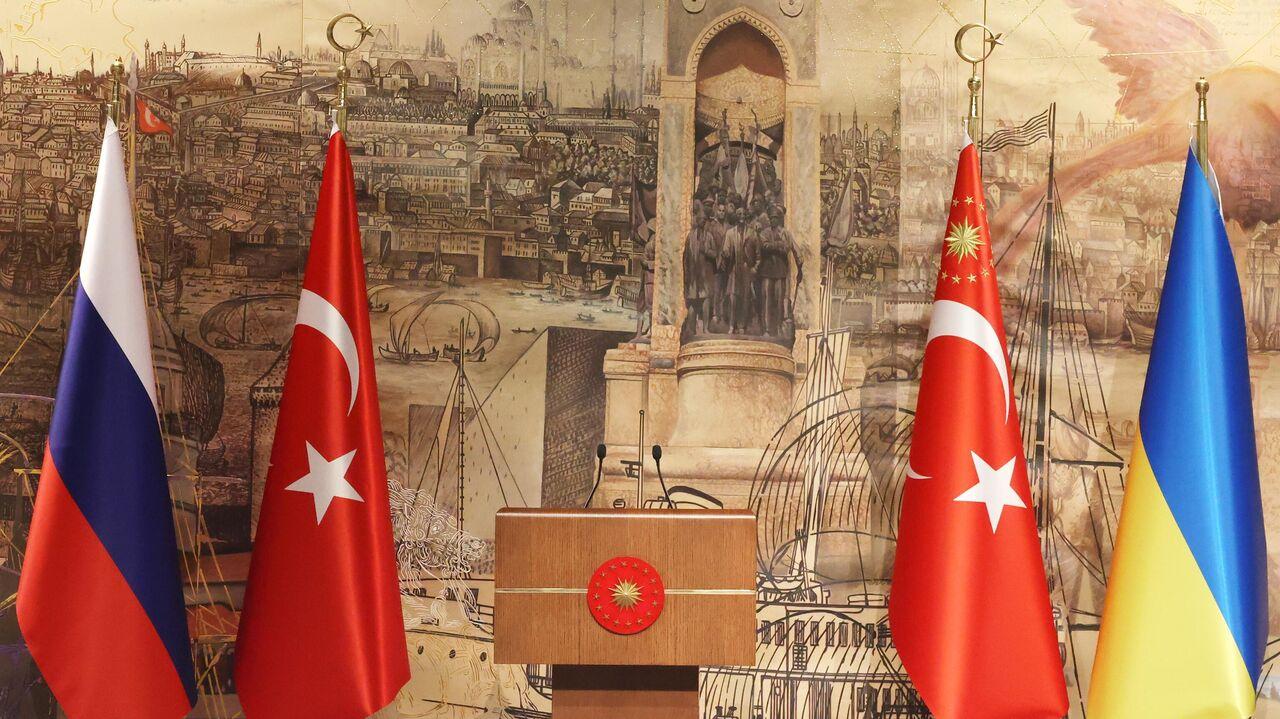
Ukrainian Deputy Foreign Minister Sergiy Kyslytsya and Presidential Office Advisor Oleksandr Bevz met with representatives from Germany, Italy and the United Kingdom in Istanbul as part of the Türkiye-Russia-Ukraine trilateral meeting framework.
According to a post on the X social media account of Ukrainian Foreign Ministry Spokesman Heorhii Tykhyi, Kyslytsya and Bevz coordinated their positions with the German, Italian, and British representatives ahead of the Türkiye-Russia-Ukraine trilateral meeting.
The Ukrainian delegation members reiterated Ukraine's commitment to peace efforts while discussing agenda items in detail, including a leaders' meeting, full cease-fire, and humanitarian confidence-building measures.
The consultations represent continued international diplomatic engagement as Ukraine seeks to coordinate with European allies before engaging in direct negotiations with Russian representatives through Turkish mediation.

Türkiye managed to bring the Russian and Ukrainian delegations to the same table after three years, achieving a significant diplomatic breakthrough in May 2025 in Istanbul.
Following the start of the bloody war in February 2022, Türkiye had previously brought Russia and Ukraine together at the same table in both Antalya and Istanbul within the same year.
The negotiations between Russia and Ukraine took place on May 16 at the Presidential Dolmabahce Working Office in Istanbul, marking a crucial diplomatic milestone after years of conflict.
During the May negotiations, both sides reached an agreement on implementing a large-scale prisoner exchange of "1,000 people for 1,000 people," a detailed presentation of discussions toward a possible cease-fire, and continuation of negotiations thereafter.
Both countries announced that the prisoner exchange agreed upon in Istanbul was completed on May 25, demonstrating concrete progress from the diplomatic engagement.

The latest round of consultations underscores Türkiye's ongoing role as a key mediator in the Ukraine-Russia conflict, providing a neutral venue for both direct negotiations and preparatory diplomatic coordination with international partners.
The involvement of German, Italian, and British representatives highlights the broader European interest in supporting diplomatic solutions to the conflict while coordinating with Ukrainian positions.
The coordination meetings with European allies represent an evolution in the diplomatic framework, with Ukraine seeking to align positions with key European partners while maintaining engagement in the Turkish-mediated trilateral process.
The discussions on humanitarian confidence-building measures and cease-fire arrangements indicate continued efforts to find practical steps toward de-escalation and eventual peace negotiations.